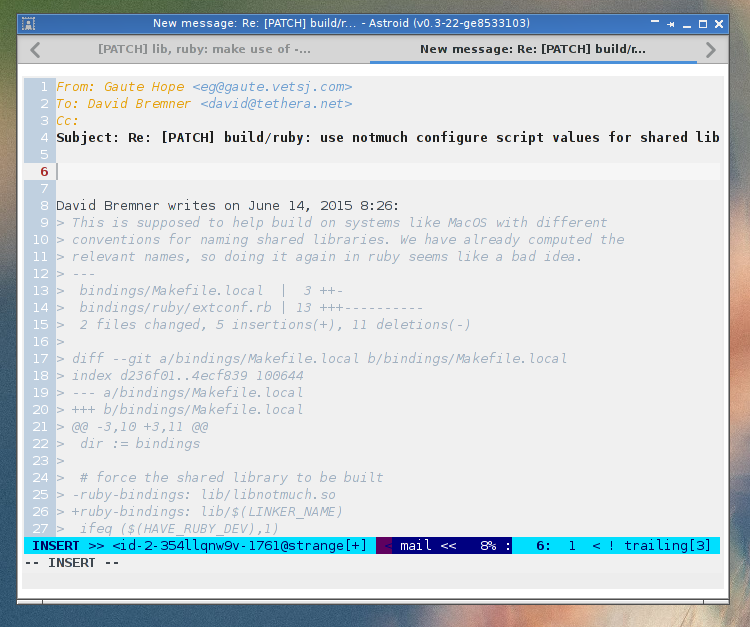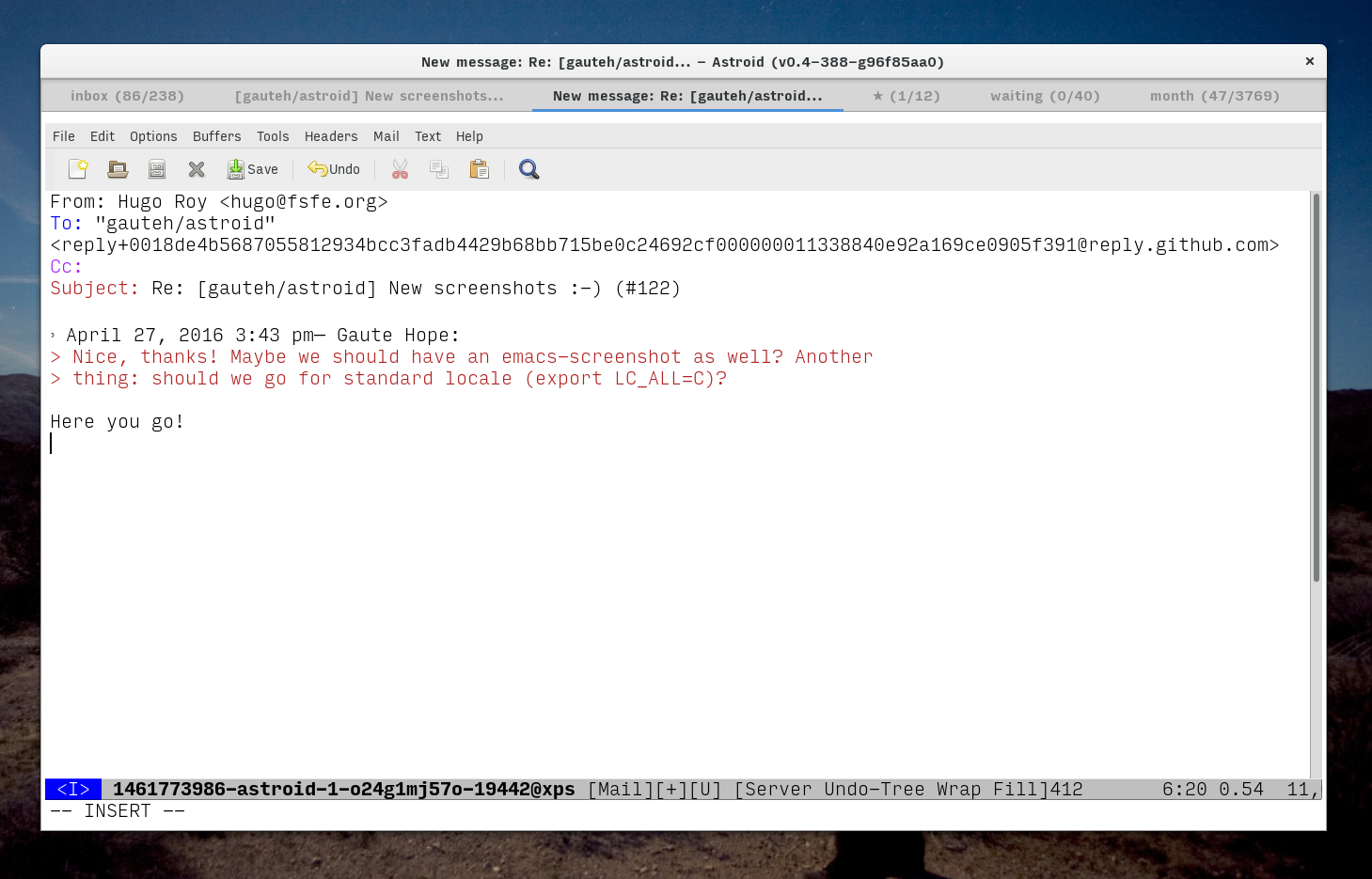-
-
Notifications
You must be signed in to change notification settings - Fork 67
Customizing editor
You can choose whether to use an embedded editor (default, does not work on Wayland) or external editor.
The default configured editor is gvim embedded using XEmbed, but any editor or setup that support XEmbed can in principle be used.
The editor.cmd string is passed to ustring::compose, and the following arguments must be set:
filename:
%1
servername:%2(probably optional)
socketid:%3
It is important that the editor is run in the forground since the process is watched by astroid.
The embedded editor does not work on Wayland, use the external editor there.
To use an external editor, set the option editor.external_editor to true, and specify only the file argument (%1) in the editor command:
"editor": {
"cmd": "gvim -f -c 'set ft=mail' '+set fileencoding=utf-8' '+set ff=unix' '+set enc=utf-8' %1",
"external_editor": "true",
},
gvim -geom 10x10 --servername %2 --socketid %3 -f -c 'set ft=mail' '+set fileencoding=utf-8' '+set ff=unix' '+set enc=utf-8' %1fancy gvim with Goyo and Limelight:
gvim -geom 10x10 --servername %2 --socketid %3 -f -c 'set ft=mail' '+set fileencoding=utf-8' '+set enc=utf-8' '+set ff=unix' -c Goyo -c Limelight! %1
emacs --parent-id %3 %1
You can use the notmuch-message-mode for composing email in emacs by having this in your emacs config file (replace [email protected] with your username and machine hostname):
(require 'notmuch)
(add-to-list 'auto-mode-alist '("[email protected]" . notmuch-message-mode))You can configure astroid to use a specific username and hostname for the message-id:
{
"mail": {
"message_id_fqdn": "localhost.domain.tld",
"message_id_user": "user"
}
}neovim (through st)
st -f 'Monospace' -w %3 -e nvim %1you could use another terminal, but it must support XEmbed, like st.